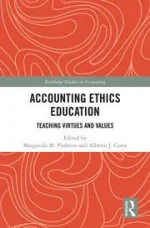-
ADVANCED ACCOUNTANCY
KSh 7,000.00Section-1: Accounting Principles and Processes • Meaning and Scope of Accounting • Accounting Principles • Journalising Transactions • Ledger Posting and Trial Balance • Sub-Division of Journal • Negotiable Instruments • Bank Reconciliation Statement • Matching Concept • Capital and Revenue • Final Accounts • Rectification of Errors • Accounting Concept of Income • Depreciation, Provisions and Reserves • Advanced Final Accounts • Sectional and Self-Balancing Systems • Accounts of Non-Profit Making Organizations • Single Entry System, Section-2: Special Business Accounting • Consignment Accounts • Joint Venture Accounts • Account Current and Average Due Date • Inventory Valuation • Hire Purchase, Lease and Instalment Purchase Systems • Branch Accounts • Departmental Accounts • Royalty Accounts • Insurance Claims • Contract Accounts • Insolvency Accounts • Introduction to Government Accounting • Miscellaneous Accounts, Section-3: Partnership Accounts • Fundamentals • Reconstitution of Partnership Firms (Admission) • Reconstitution of Partnership Firms-II (Retirement, Death and Amalgamation) • Dissolution of Partnership Firms • Appendix-I: Guidance Note on Terms Used in Financial Statements • Appendix-II: Present Value of Rs. 1 • Appendix-III: Periodic Deposit Which Will Amount to Rs. 1 • Appendix-IV: Present Value of Rs. 1 Received Annually for N Years • Appendix-V: Periodic Payment to Amortize Rs. 1 and Interest
-
Accounting Ethics Education Teaching Virtues and Values-1st edition
Accounting Ethics Education: Teaching Virtues and Values gathers a diversity of contributions from invited, well-known experts. It promotes a comprehensive reflection around how ethics can and should be taught to accounting students, discussing and highlighting the most updated research on accounting ethics education, and it is an essential reference in the field.
The subject of accounting ethics education is critical to foster ethical awareness that may prevent the way in which one acts or behaves, especially towards others. The point is that accounting education cannot exist without ethical education and accountants must be technically proficient and ethically sensible since ethical behavior is vital to the status and credibility of the accountancy profession. And this sensibility must be developed while the future professional is still cultivating his or her moral and intellectual structure within the school learning environment: character and practical reasoning are crucial because they include not only knowledge of rules and principles, and their correct application but also values and virtues.
Examining multiple perspectives, Accounting Ethics Education: Teaching Virtues and Values advances the scholarly debate by providing cuttingedge and insightful research vital for all those interested and immersed in these matters. It begins with a historical perspective of accounting ethics education and continues by exploring challenges, opportunities and developments in the area. It will be of great value to academics, students, researchers and professionals in the fields of accounting, accounting education and ethics.


